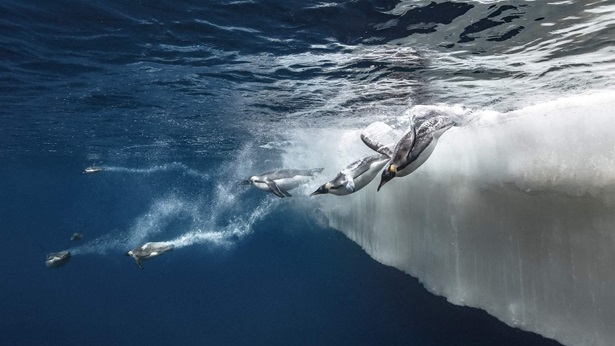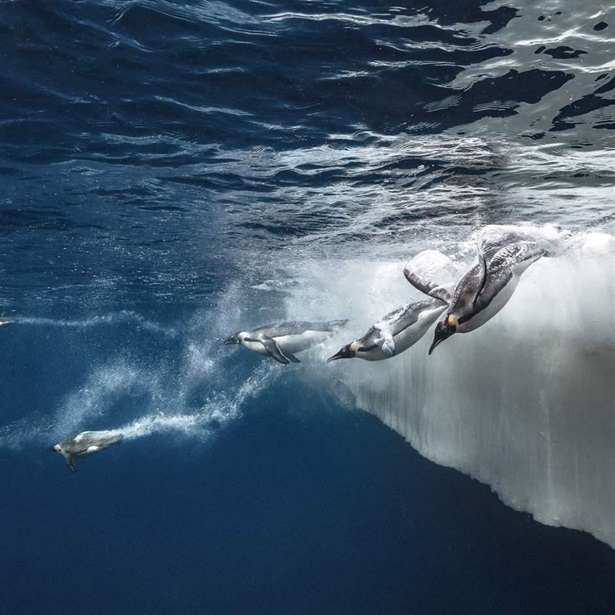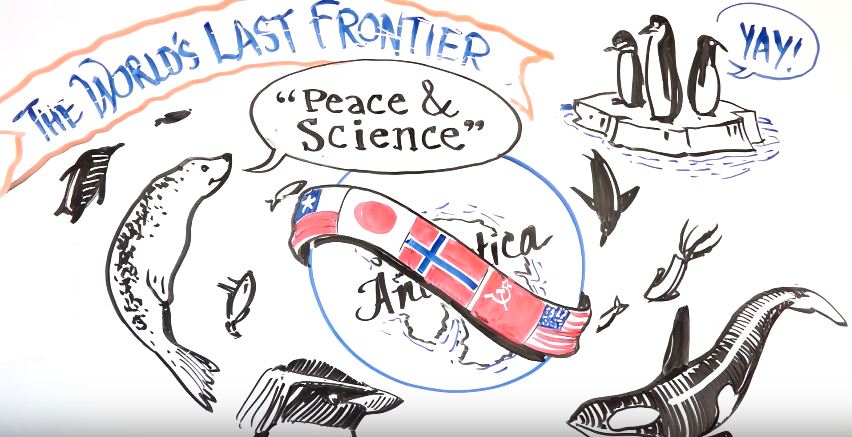Antarctica’s Southern Ocean is one of the world’s last great wilderness areas, surrounding the coldest, driest, windiest, and least altered continent.
The ocean’s frigid waters bustle with thousands of species found nowhere else, from brilliantly hued starfish and bioluminescent worms to pastel octopuses. Nutrients that well up from the icy depths ride currents great distances to nourish wildlife in faraway seas.
Antarctica is also home to millions of penguins that feed on large swarms of krill, a tiny shrimplike crustacean, and other forage species in the region’s delicate food web.
But those predator-prey relationships are in jeopardy, scientists say, in large part because the Southern Ocean ecosystems are being modified by the impacts of climate change. Temperatures there are warming faster than nearly anywhere else on Earth.
To protect this spectacular region and the species that rely on it, Pew Bertarelli Ocean Legacy and its partners are working with the Commission for the Conservation of Antarctic Marine Living Resources (CCAMLR)—the body responsible for conserving biodiversity in the Southern Ocean—and its member governments to establish a network of large-scale marine protected areas (MPAs) around Antarctica.
The Pew Bertarelli Ocean Legacy Project
The Pew Charitable Trusts and Dona Bertarelli created the Pew Bertarelli Ocean Legacy Project, with the shared goal of establishing the first generation of ecologically significant, large, and effective marine protected areas (MPAs) around the world. Today, the Pew Bertarelli Ocean Legacy Project also seeks to connect MPAs and help conserve key migratory species and entire marine ecosystems. These efforts build on more than a decade of work by Pew and the Bertarelli Foundation, led by Dona Bertarelli, to create large-scale, highly or fully protected MPAs. Between them, they have helped to obtain designations or commitments to safeguard nearly 12.6 million square kilometers (4.8 million square miles) of ocean by working with communities, local leaders, philanthropic partners, Indigenous groups, government officials, and scientists. Dona Bertarelli is a philanthropist, investor, sportswoman, and strong advocate for ocean conservation. The Pew Charitable Trusts is driven by the power of knowledge to solve today’s most challenging problems, including the need for effective marine conservation.


在南大洋建立海洋保护区网络的必要性
Our Work
This video is hosted by YouTube. In order to view it, you must consent to the use of “Marketing Cookies” by updating your preferences in the Cookie Settings link below. View on YouTube
This video is hosted by YouTube. In order to view it, you must consent to the use of “Marketing Cookies” by updating your preferences in the Cookie Settings link below. View on YouTube


This video is hosted by YouTube. In order to view it, you must consent to the use of “Marketing Cookies” by updating your preferences in the Cookie Settings link below. View on YouTube
This video is hosted by YouTube. In order to view it, you must consent to the use of “Marketing Cookies” by updating your preferences in the Cookie Settings link below. View on YouTube




